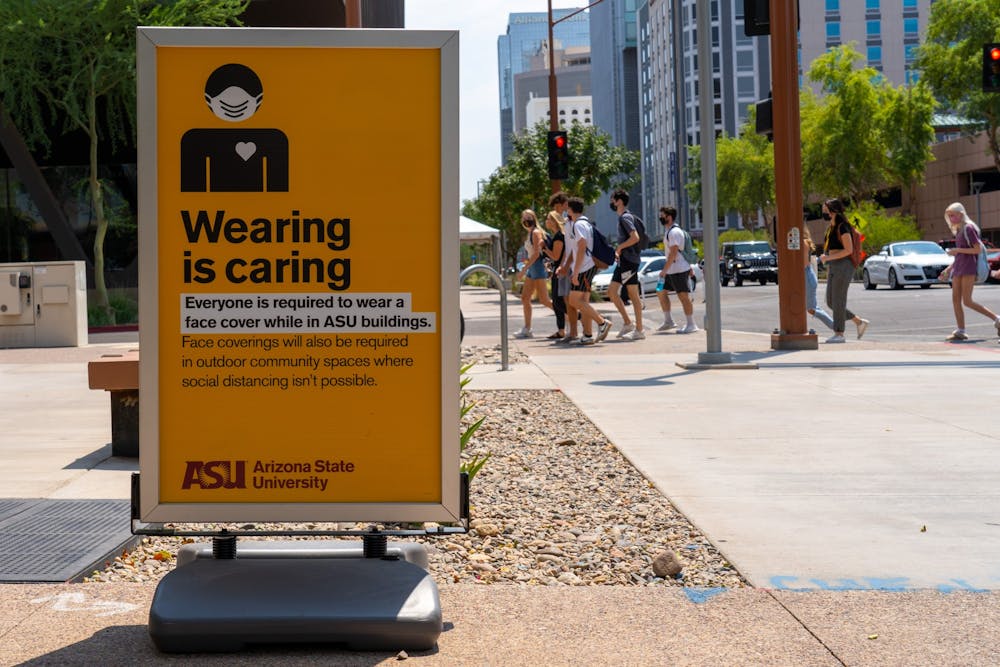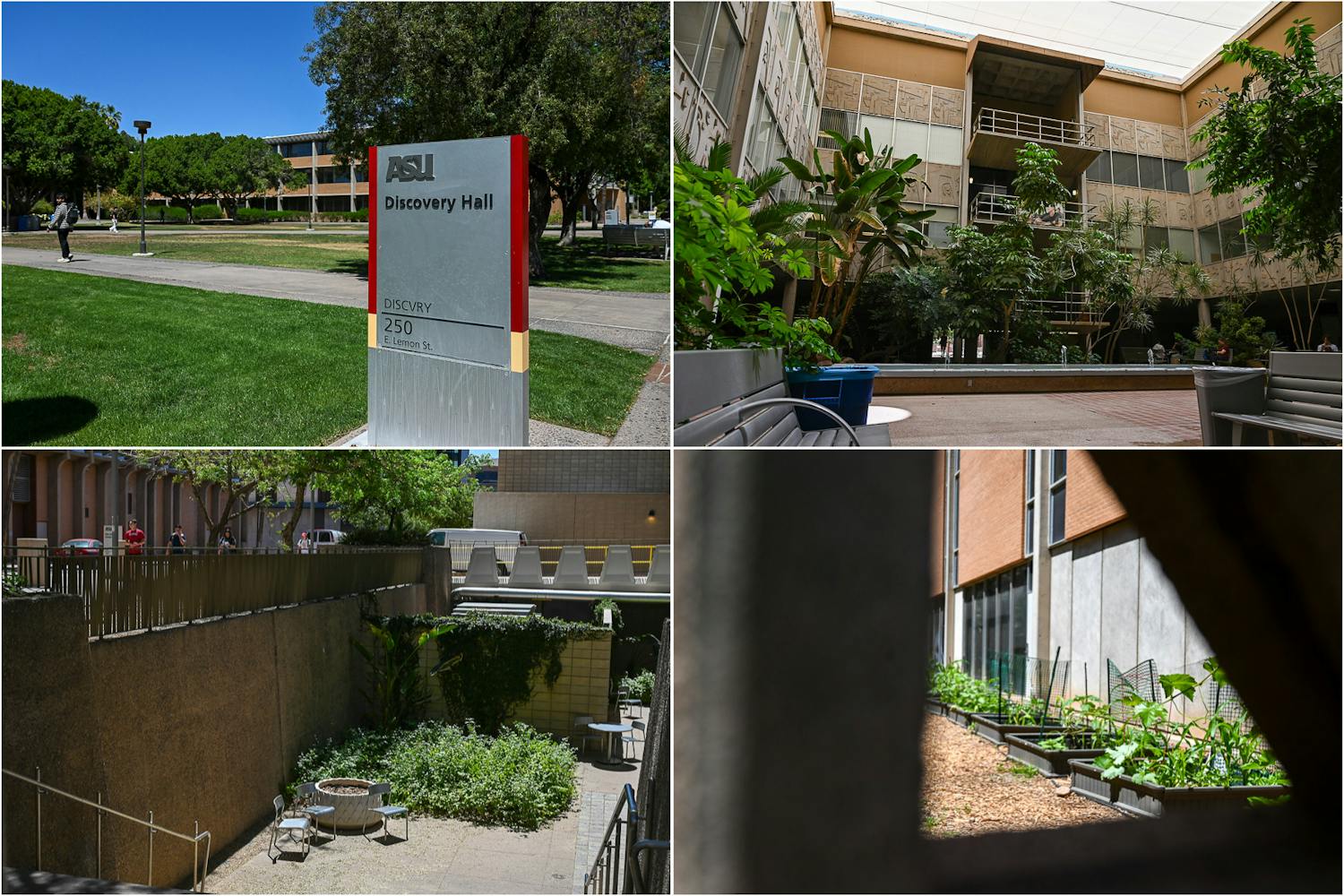A total of 207 students and 21 student organizations have been placed on interim action for alleged COVID-19 related violations since Aug. 1, a University spokesperson confirmed.
Out of those students and organizations, ASU has found 167 students and 11 organizations responsible for violating COVID-19 safety guidelines. There are currently six students and five student organizations on interim action.
These latest interim action totals reflect an increase of 91 students and three student organizations since The State Press' last update in November.
Interim actions, though not considered disciplinary, are intended to be educational and "encourage students to make better choices in the future," according to the Student Code of Conduct Procedure.
"For those found responsible for COVID-related violations, both individual students and student organizations have received a variety of educational outcomes and disciplinary sanctions including, but not limited to, suspension, probation, warnings, removal from housing, educational trainings, testing, and community service," the spokesperson wrote in an email.
The Student Code of Conduct, specifically section F-17, has been used to enforce COVID-19 off-campus public health regulations, according to University officials.
A spokesperson confirmed ASU began an investigation after videos of what appeared to be an off-campus fraternity party with crowds of at least 50 maskless people standing shoulder-to-shoulder to one another surfaced online. The investigation was first reported by the Arizona Republic.
"The process related to the Lambda Chi Alpha fraternity, which included peer review from fellow students, has concluded and consequences have occurred — holding the fraternity accountable while also providing education about the health impact and community impact of their choices," the spokesperson wrote in a statement.
With more than 290 active cases of COVID-19 within the ASU community (as of Monday), many students have come forward and condemned their peers for their violations.
"These parties are like a blatant slap in the face to everyone who's doing their part, to everyone that's lost family members, to doctors, nurses and other health care professionals that are risking their lives every day to care of people," said former student Sukhmani Singh, who initially brought attention to the video through a tweet on Twitter.
Singh graduated from ASU in political science and sustainability in December and said she "wasn't surprised at all" to see not much has changed since then.
"I have been seeing videos like this throughout the entire pandemic," Singh said. “"Though it was shocking to see an event that large taking place and seeing so many of my own peers, that just demonstrated they have such little regard for their community."
Olivia Perryman, a senior studying political science, said her most pressing concern upon seeing the videos was the risk of community spread.
"Tempe isn't just a college town. There's people who live there, there's families, there's people at risk and I think some people fail to remember that," Perryman said. "To see your fellow Sun Devils go out there and party like nothing's going on, it's really disheartening.
"People have put their birthdays on pause, their holidays on pause and you're just gonna blow it off for a frat party? That seems like a total disregard to the members of our community who obviously have been social distancing and have lost a lot," she said.
The virus has "affected all of our lives," Singh said. "No one was exempt from this."
Singh said she and her family worry every day when her father, who is a nurse, leaves in the morning for work. She said online and socially distanced events outdoors are a safer alternative to social events which could risk spread of the virus.
"Until you have two vaccine doses in your arm, you need to keep being as vigilant as you were in March," Singh said.
Perryman said Greek Life leaders should set an example and discourage their members from participating in dangerous activities.
"Getting rid of Greek Life isn't a solution, of course, they do good things," she said. "But there has to be some sort of way to make the message clear that they shouldn't be having these mass gatherings."
Perryman said the cost of potentially spreading the virus outweighs the cost of missing out on in-person events.
"There's still ways for you to connect with people and have fun during the pandemic, it may not be the option that you're totally used to, but some of us have to make sacrifices," Perryman said. "And if that means someone's relative is going to stay safe or a family's not going to lose their mom or their grandma, then I absolutely think it's absolutely worth it."
Reach the reporter at sreyes23@asu.edu and follow @r_salma_ on Twitter.
Like The State Press on Facebook and follow @statepress on Twitter.
Continue supporting student journalism and donate to The State Press today.




